Ford Puma vs Kia Sportage - Differences and prices compared
Compare performance (168 HP vs 239 HP), boot space and price (24800 £ vs 30200 £ ) at a glance. Find out which car is the better choice for you – Ford Puma or Kia Sportage?
Costs and Efficiency:
Looking at overall running costs, both models reveal some interesting differences in everyday economy.
Ford Puma has a clearly perceptible advantage in terms of price – it starts at 24800 £ , while the Kia Sportage costs 30200 £ . That’s a price difference of around 5391 £.
Fuel consumption also shows a difference: Kia Sportage manages with 5 L and is therefore barely noticeable more efficient than the Ford Puma with 5.40 L. The difference is about 0.40 L per 100 km.
Engine and Performance:
Power, torque and acceleration say a lot about how a car feels on the road. This is where you see which model delivers more driving dynamics.
When it comes to engine power, the Kia Sportage has a clearly perceptible edge – offering 239 HP compared to 168 HP. That’s roughly 71 HP more horsepower.
In acceleration from 0 to 100 km/h, the Ford Puma is hardly perceptible quicker – completing the sprint in 7.40 s, while the Kia Sportage takes 7.90 s. That’s about 0.50 s faster.
In terms of top speed, the Ford Puma performs hardly perceptible better – reaching 210 km/h, while the Kia Sportage tops out at 203 km/h. The difference is around 7 km/h.
There’s also a difference in torque: Kia Sportage pulls slight stronger with 320 Nm compared to 290 Nm. That’s about 30 Nm difference.
Space and Everyday Use:
Cabin size, boot volume and payload all play a role in everyday practicality. Here, comfort and flexibility make the difference.
Both vehicles offer seating for 5 people.
In curb weight, Ford Puma is a bit lighter – 1316 kg compared to 1552 kg. The difference is around 236 kg.
In terms of boot space, the Kia Sportage offers a bit more room – 587 L compared to 523 L. That’s a difference of about 64 L.
In maximum load capacity, the Kia Sportage performs noticeable better – up to 1776 L, which is about 493 L more than the Ford Puma.
When it comes to payload, Kia Sportage to a small extent takes the win – 580 kg compared to 469 kg. That’s a difference of about 111 kg.
Who wins the race in the data check?
The Kia Sportage is decisively ahead in the objective data comparison.
This result only shows which model scores more points on paper – not which of the two cars feels right for you.
Costs and Consumption
View detailed analysis
Engine and Performance
View detailed analysis
Dimensions and Body
View detailed analysis
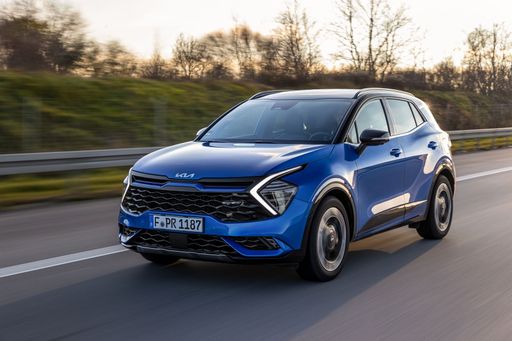
Kia Sportage
Ford Puma
The Ford Puma is a cheeky compact crossover that blends sporty styling with city-friendly practicality, giving drivers a surprisingly fun and composed ride. With clever storage tricks and a lively personality, it’s a smart pick for buyers who want enjoyment without fuss.
details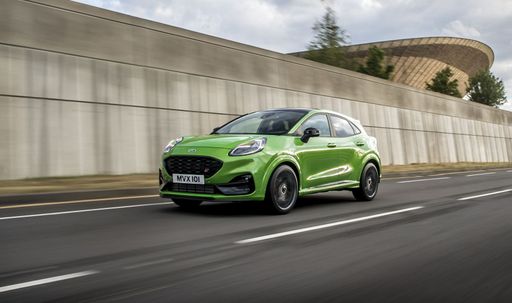
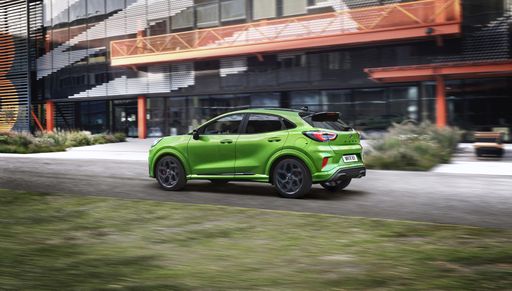
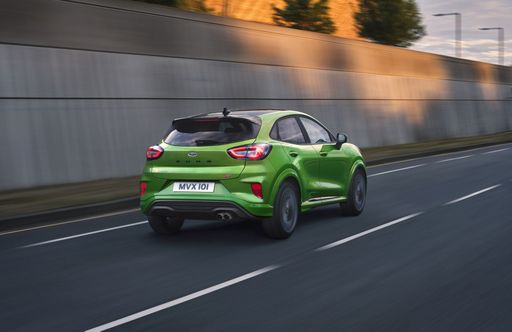
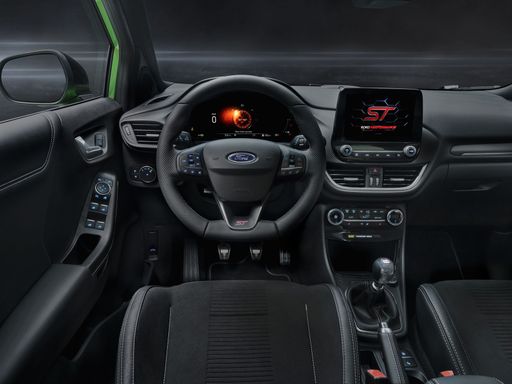
Kia Sportage
The Kia Sportage proves you don't have to choose between style and sensible family motoring, wrapping modern, confident looks around a roomy, well-equipped cabin. It's an easy car to live with — comfortable on daily runs, pleasantly engaging when you want a bit of fun, and kind to your wallet so you can keep smiling at the fuel pump.
details
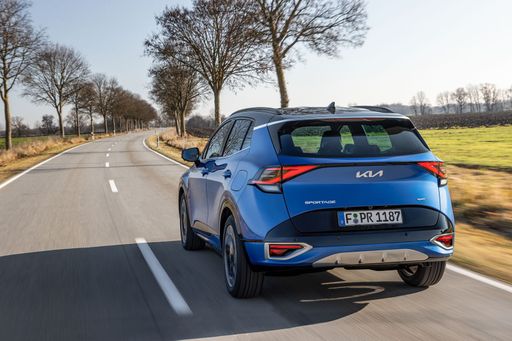


Costs and Consumption |
|
|---|---|
|
Price
24800 - 36300 £
|
Price
30200 - 43900 £
|
|
Consumption L/100km
5.4 - 5.9 L
|
Consumption L/100km
5 - 7.9 L
|
|
Consumption kWh/100km
13.1 - 13.9 kWh
|
Consumption kWh/100km
-
|
|
Electric Range
361 - 376 km
|
Electric Range
-
|
|
Battery Capacity
43 kWh
|
Battery Capacity
-
|
|
co2
0 - 135 g/km
|
co2
132 - 180 g/km
|
|
Fuel tank capacity
42 L
|
Fuel tank capacity
52 - 54 L
|
Dimensions and Body |
|
|---|---|
|
Body Type
SUV
|
Body Type
SUV
|
|
Seats
5
|
Seats
5
|
|
Doors
5
|
Doors
5
|
|
Curb weight
1316 - 1563 kg
|
Curb weight
1552 - 1733 kg
|
|
Trunk capacity
456 - 523 L
|
Trunk capacity
526 - 587 L
|
|
Length
4186 - 4226 mm
|
Length
4540 mm
|
|
Width
1805 mm
|
Width
1865 mm
|
|
Height
1550 - 1555 mm
|
Height
1645 mm
|
|
Max trunk capacity
1216 - 1283 L
|
Max trunk capacity
1715 - 1776 L
|
|
Payload
367 - 469 kg
|
Payload
543 - 580 kg
|
Engine and Performance |
|
|---|---|
|
Engine Type
Electric, Petrol MHEV
|
Engine Type
Petrol, Full Hybrid, Diesel MHEV
|
|
Transmission
Automatic, Manuel
|
Transmission
Manuel, Automatic
|
|
Transmission Detail
Reduction Gearbox, Manual Gearbox, Dual-Clutch Automatic
|
Transmission Detail
Manual Gearbox, Dual-Clutch Automatic, Automatic Gearbox
|
|
Drive Type
Front-Wheel Drive
|
Drive Type
Front-Wheel Drive, All-Wheel Drive
|
|
Power HP
125 - 168 HP
|
Power HP
136 - 239 HP
|
|
Acceleration 0-100km/h
7.4 - 9.8 s
|
Acceleration 0-100km/h
7.9 - 11.6 s
|
|
Max Speed
160 - 210 km/h
|
Max Speed
180 - 203 km/h
|
|
Torque
170 - 290 Nm
|
Torque
250 - 320 Nm
|
|
Number of Cylinders
3
|
Number of Cylinders
4
|
|
Power kW
92 - 124 kW
|
Power kW
100 - 176 kW
|
|
Engine capacity
999 cm3
|
Engine capacity
1598 cm3
|
General |
|
|---|---|
|
Model Year
2025
|
Model Year
2025
|
|
CO2 Efficiency Class
A, D
|
CO2 Efficiency Class
F, D, E, G
|
|
Brand
Ford
|
Brand
Kia
|
Is the Ford Puma offered with different drivetrains?
The Ford Puma is offered with Front-Wheel Drive.




